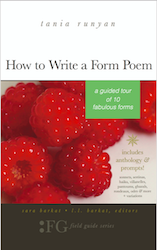Order and Disorder in Macbeth: Nature Reigns
The play Macbeth, by William Shakespeare, is a story about how a man, Macbeth, and his wife tried to meddle with order and fate, and how this backfired tragically. The tale uses nature as a reflection of the emotional inner events of the characters and uses it to illustrate Shakespeare’s meaning that draws on the Elizabethan worldview in which all things have their proper place and order, and character and fate is quite predetermined. It reads like a horror story with supernatural elements in which the order of nature is overturned when the rightful king is murdered, and the confusion of order, both personal and nature-wise, persists until the end of the play when a rightful king returns and takes up his crown.
Nature Mirrors
The play has two beginnings, though one is more like the prologue, and each of them mirrors the earth/air, natural/supernatural divide. In the first opening, with the witches, we learn that there is a battle that will be “lost and won” and that they will meet Macbeth, the protagonist of the play, on a heath. They leave with the words, “fair is foul, foul is fair, hover through the fog and filthy air, ” and in the second opening, on the heath after the battle has been won, Macbeth echoes their words with his opening lines, “so foul and fair a day I have not seen.”
From the very start of the play the witches are associated with the air and with the supernatural elements; in fact their very first line reflects this: “when shall we three meet again, in thunder, lightning, or in rain?” while Banquo and the King, as well as many other minor players, including the King’s son, Malcolm, are associated with earth and the natural order; Macbeth and his wife’s place is uncertain, but aligned more with air and the supernatural than with the ground.
When the witches disappear, Banquo asks, “the earth hath bubbles, as the water has, and these are of them. Wither are they vanished?”
“Into the air, ” Macbeth answers, “and what seemed corporal melted as breath into the wind.”
From that same beginning, Banquo is associated with the earth. When asking the witches of his future, he asks if they can “look into the seeds of time and see which grains will grow and which will not”; when they meet up with the king, he and Duncan have an exchange in which Duncan uses plant metaphors. Banquo and the king represent the natural order, whereas the Macbeths’ ambition and the lengths they will go to realize it overturn that order, and create anarchy, chaos, and entropy.
The witches also represent chaos; inasmuch as they represent earth they are the wild, untamed wildernesses, while the State, under the rule of the king and of subjects each in proper places works like a farm, a place of growing and plenty, but more importantly, of order. The witches are described as “wither’d and wild”; they meet Macbeth first on a heath—where they appear to him without his leave and vanish over his protestations—and again in a cave, where Macbeth seeks them out and has to be invited within; “open, locks, whoever knocks”, and where, consequently, they show him apparitions and concede to his demands, showing the double truth that he is closer to them than before but that that closeness, though it feels like power over them, means only he is being controlled by them (if he had been able to see their vengeful intentions, he would have known he could never win against Fortune/Fate, though he had seemed to successfully disdain Fortune in the beginning after it smiled on Macdonwald, whom he killed: “For brave Macbeth…disdaining Fortune, with his brandished steel, which smoked with bloody execution…carved out his passage…”). Now, by aligning himself with the supernatural he has become vulnerable to it and is set up to receive the payback of Fate (generally pictured as three “sisters” in classical mythology), which does not take kindly to being disdained.
The land, of course, draws on the king, its health depending on his health and drawing prosperity from him; therefore, it is no surprise that when he was murdered, the land would react in many disastrous ways that parallel the murder that had occurred: the mousing owl (Macbeth) killed the hawk (Duncan); the king’s horses went wild and ate each other; when Macbeth creeps to Duncan’s bedchamber to murder him, he asks “Thou sure and firm-set earth, hear not my steps, which way they walk, for fear thy very stones prate of my whereabout.”
As the air and the wilderness is associated with the supernatural, so is darkness, and it is darkness that Macbeth and the Lady call on to help them in their crimes. When Duncan names his son as his heir, Macbeth prays, “stars, hide your fires; let not light see my black and deep desires” and when the Lady reads Macbeth’s letter and decides to kill king Duncan, she asks, “come, thick night, and pall thee in the dunnest smoke of hell, that my keen knife see not the wound it makes, nor heaven peek through the blanket of the dark, to cry ‘Hold, Hold!’” When Macbeth arranges to kill Banquo, he says, “come, seeling night, scarf up the tender eye of pitiful day; and with thy bloody and invisible hand cancel and tear to pieces that great bond which keeps me pale! Light thickens; and the crow makes wing to the rooky wood: good things of day begin to droop and drowse; while night’s black agents to their preys do rouse.” Duncan is of the day, of order; when he dies, the sun doesn’t come up. Later on, the Lady Macbeth will require a candle by her bed at all times, even taking it with her as she sleepwalks; but though “her eyes are open… their sense is shut”; and she walks in darkness even with a light.
The Proper Order
The proper order of all things includes sleep, and as the order is unbalanced with the killing of Duncan, sleep is also murdered. Macbeth hears a voice say, “Sleep no more! Macbeth does murder sleep… Glamis hath murder’d sleep, and therefore Cawdor shall sleep no more; Macbeth shall sleep no more.” He and his Lady retire to their chambers so that they will be thought to have been sleeping so as not to raise suspicion, but it is a feigned sleep, a lie to hide the evidence of their crimes—at the time of Banquo’s murder, Macbeth refers to “these terrible dreams that shake us nightly”, showing the fact that the voice had been right, sleep had been denied them ever since the murder, ever since they allied themselves with disorder. This lack of sleep is foreshadowed and connected with the Witches; earlier in the play, when talking of the captain of a ship who angered them, the witches’ punishment includes depriving him of sleep: “sleep shall neither night nor day hang upon his pent-house lid; he shall live a man forbid: weary se’nnights nine times nine shall he dwindle, peak and pine”.
Supernatural, Unnatural, and Natural
The supernatural element itself embodies the unnatural, from the appearance of the witches who “should be woman” and yet aren’t, to the mysterious apparitions created by the witches and those that form before Macbeth: the bloody dagger that heralds the murder of the king, and the ghost of Banquo that appears once Macbeth has learned of his death, sitting on Macbeth’s own seat. Macbeth says, of the ghost of Banquo, “Blood hath been shed ere now, i’ the olden time, ere human statute purged the gentle weal; ay, and since too, murders have been perform’d too terrible for the ear: the times have been, that, when the brains were out, the man would die, and there an end; but now they rise again, with twenty mortal murders on their crowns, And push us from our stools: this is more strange than such a murder is.” Just as nature is attacking itself after the murder of the king, Macbeth’s secret knowledge is attacking him in the form of apparitions; and the Lady Macbeth will be tormented by reliving the consequences of the murder even in her dreams.
The ultimate and last twisting of nature is both the culmination and the ending of it all, bringing the power back into reality and normality: when the prophecies (that Macbeth could not be killed by one of women born), and that “Macbeth shall never vanquish’d be until great Birnam wood to high Dunsinane hill shall come against him” are fulfilled. Their letter seems to herald the impossible, if not the supernatural; “Who can impress the forest, bid the tree unfix his earth-bound root?” Macbeth asks, thinking he is safe; but in fact the culmination involves nothing supernatural at all; the wood coming to Dunsinane was a tactic the soldiers used to hide their numbers by holding branches over them and nothing more; it is the natural which has defeated Macbeth, for all his faith in supernatural aid. With the return of the king’s named heir Malcolm from exile and the restoring of order, the turbulent rule of the Macbeths is over. Daylight presides.
Photo by PS Lee, Creative Commons, via Flickr. Post by Sara Barkat.
See Lord of the Flies (Also a Text of Order & Disorder)
See Was Hamlet Sane or Insane?
Browse more Shakespeare
- Good News—It’s Okay to Write a Plot Without Conflict - December 8, 2022
- Can a Machine Write Better Than You?—5 Best (And Worst) AI Poem Generators - September 26, 2022
- What to Eat With Dracula: Paprika Hendl - May 17, 2022



Sandra Heska King says
Double, double, toil and trouble…
Thanks for this peek back into Macbeth, Sara. You’ve made me want to go back and read it again.
I love your last line… “Daylight presides.”
Sara Barkat says
You’re welcome! I hope you go back & read it. 🙂 Let me know if you do. I read it the first time when I was 12 and many times since then. It’s my favourite Shakespeare play.
Megan Willome says
This is fascinating. Why couldn’t you have been my teacher in 7th grade, when we read Macbeth?
Sara Barkat says
So you were 12 when you first read it too? Did you like it?
Richard Maxson says
Sara, I second Megan’s comment. I read all your Shakespeare deconstructions and each time, having done so, feel like I’m in the classroom of a very good teacher. You put to shame the teachers of Shakespeare I had in high school. You always get at the associations and nuance present in the plays.
Brava!
Sara Barkat says
Thank you. I love stories of all kinds and maybe it helps to reread.
Callie Feyen says
I love reading annotations, Sara, and you are a master. It’s heavy weight writing, don’t you think? That is, to write about why a book works, seems more important and yet more difficult, then to discuss how we feel about a book. I remember in grad school one of my teachers saying, “I don’t care how you feel about this book, I want to know how it works. WHY it works.” You analyzations bring so much depth to the stories you write about.
I agree with all the other commenters. It would’ve been nice to have you as a teacher. Maybe TSPoetry should offer a course? 🙂
Sara Barkat says
Thanks so much, 🙂
I agree, it’s important to talk about more than just what you feel about a work, but it can be useful to talk about what you feel about a work from the standpoint of discovering why and how the book created that impression.